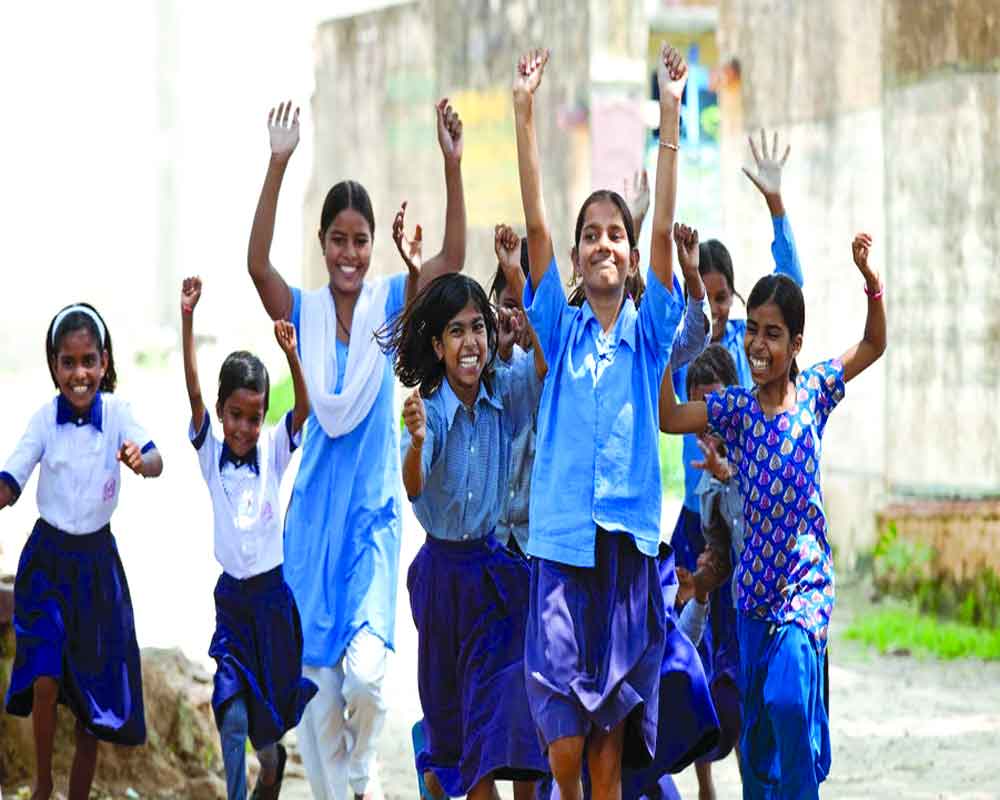On the eve of Menstrual Hygiene Day, here are some Ayurvedic tips to fight disorders and findings of a survey done by Youth Ki Awaaz
On World Menstrual Hygiene Day, Youth Ki Awaaz in collaboration with Water, Supply & Sanitation Collaborative Council (WSSCC) has published findings from an online survey it conducted on the issue of menstrual health and hygiene. The survey which was launched online in September 2019 and conducted over a period of 12 weeks gathered responses from young Indians in the categories of awareness on menstrual hygiene, taboos, perceptions and attitudes towards periods in India.
It gathered preferences on issues of product usage, productivity at the workplace; cultural practises and beliefs and explored the intersections around menstrual hygiene, health, gender, emotional and mental well-being.
The idea behind the survey was to dig deeper into how young people perceive menstrual hygiene and gauge their attitudes, which can help further inform decision making process by policy makers.
Some of the findings from the survey are:
Sustainable menstrual hygiene products: Almost 71 per cent of those who responded agreed to using non-biodegradable sanitary napkins and almost 63 per cent recognised that it is harmful for the environment. But affordability and the issue of trust, remained a barrier in menstruators making a clear switch to biodegradable alternatives.
Young people are more open to conversation around menstrual hygiene: More than 28 percent respondents in the age group of 18-22 said they were comfortable speaking about menstruation while only 27 percent agreed to that in the age group of 23-25 years.
Negative emotions associated with first periods: Fear and anxiety were the dominant negative emotions for the women experiencing their first period with more than 23 per cent respondents opting for that.
Need for a relook at menstrual leave policy: Almost 41 per cent of the respondents were in favour of introducing a Bill in Parliament around the menstrual leave.
Cultural taboos exist: Almost 49.2 per cent respondents admitted that they have heard activities like “Praying” should be avoided during Periods. And 51.1 per cent respondents admitted they have been isolated or excluded from an event because of menstruation.
Lack of diversity around menstrual hygiene in India: More than 47 per cent respondents felt that menstruation is a “women’s only issue”. The majority were not aware that periods is also a non-binary and Trans men issue. So much so, that only 10 per cent respondents felt that the needs of non-binary and trans population are being met around menstrual hygiene.
Dr Partap Chauhan, director, Jiva Ayurveda says that the factors are responsible for this condition include the increased intake of sour, salty, hot, pungent, heavy, and fermented food; meat of fatty and domestic animals; alcoholic beverages; indigestion; and eating before the previous meal is digested. Conditions that also have a strong effect include repeated abortions, excessive sexual activity, increased physical exertion (walking, riding, weight lifting, etc.), emaciation, trauma, and day sleeping. Psychological conditions such as grief, anger, lust, and anxiety are also known to play a key role in aggravating menstrual problems.
He says: “According to Ayurveda, poor diet and inefficient digestion are the main causative factors for these disorders. Improperly digested food leads to the production of toxins in the body. These toxins are circulated by the blood to the deep tissues and channels, where they cause blockages and stagnation. These conditions cause aggravation of Vata Dosha (air) and the Rakta Dhatu (blood). The aggravated Vata brings impaired blood into the channels carrying the menstrual blood, leading to increase menstrual blood flow.
He recommends various types of treatment to treat menstrual problems. These include nourishing and toning herbs as well as rejuvenative treatment in accordance with the nature of the disorder. Massage and the incorporation of meditation and yoga may also be beneficial for permanent elimination of the problems. It is important to address these menstruation problems because a woman expels a large proportion of her wastes and toxins through this process. If these toxins remain in the body, they cause further stagnation and blockage within the body.
Dr Partap shares some Ayurvedic tips to fight menstrual problems:
Take one crushed garlic clove with two cloves twice a day during your periods.
When suffering from period cramps, take a teaspoon of aloe vera gel mixed with a pinch of black pepper or cinnamon powder.
Drinking ginger infused herbal tea helps. You can also mix one tsp of ginger powder in warm water and have that.
Take the following decoction from the first day of your periods as it helps to alleviate the symptoms: Boil one tsp of cumin seeds with two glasses of water over moderate heat until the mixture reduces to half. Sieve the seeds. Add a teaspoon of honey and drink it warm.
Cooling showers and bathing with sandalwood and mint essence are helpful.


























